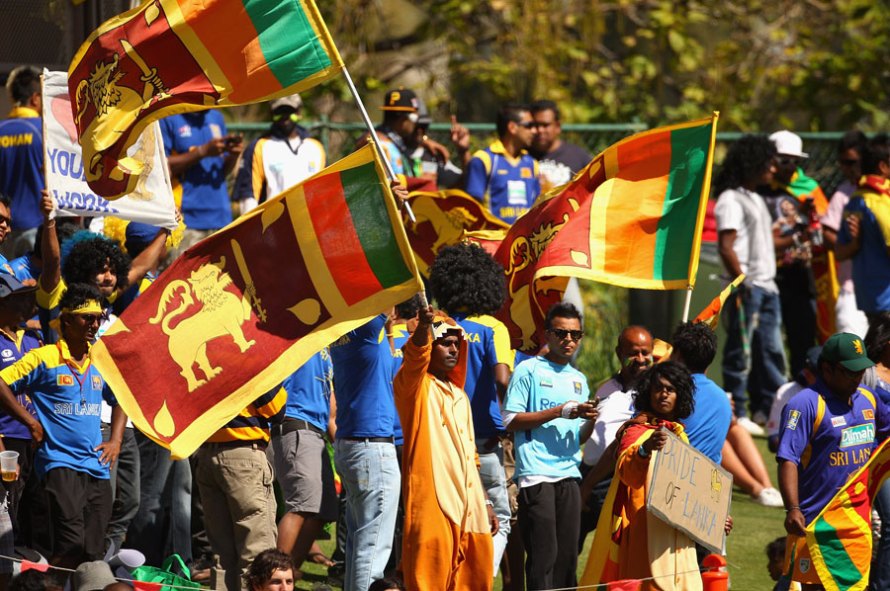
As we take a short breather from the hectic cricket season where Sri Lanka played in South Africa, Australia and Bangladesh over the last 3 months with ups and down bringing joy and sadness to millions of Sri Lankans around the world, the leadership lessons have been tremendous.
The world cup loss to India on the 2nd of April 2011, which was surrounded with controversy [that I will not comment on as I do not have the required information to do], the resignation of the captain and the financial crisis of the cricket board had left the team in turmoil.
Thereafter Sri Lanka lost series to England, Australia, Pakistan, South Africa, Australia and the Asia cup. During this period millions of Sri Lankans stood behind their player who had bought glory to the country winning the world cup in 1996, producing the world’s best bowler Murali and many other milestones that has put tiny Sri Lanka on the world map as a great nation.
The first leadership lesson I see is the need for the team to be focused on a higher purpose, the purpose of bringing glory to the country, building confidence in the millions of Sri Lankans and inspiring young Sri Lankans to be world-class. This will help them to focus beyond the immediate obstacles facing them. While unsure about the real reasons for the resignation of the captain, it would have been great for the team if he had continued to lead the team who needed a strong leader.
The second leadership lesson is to use challenges as an opportunity to grow. God gives us challenges to help us grow. If we did not have those challenges we will not get the strength needed to overcome obstacles. In the face of all the obstacles the team should have focused on the game, shutting off the external noise and focused on showing that they are real world champs through their results.
The third lesson is to do what is possible to change the situation. This requires communicating to those who make the decision at the highest level, to get the resource, the right players, the right captain, the right coaching support and the right tour scheduling. This may be challenging due to the various points of views of the decision makers but it has to be done.
The fourth leadership lesson is to have a leader who is experienced, respected, motivating and who displays credibility with results. This was very clear once Mahela took over the captaincy. The same team who was struggling was able to beat Australia more times than ever in their home soil, beat the world champs India to get to the final and almost won the CB series.
The fifth lesson in leadership is to remember that leadership is not bestowed by the position one holds, it is bestowed by those who are led. Leadership is the ability to influence others to improve their performance towards their potential. Leadership is inspiring others to rise when they fall, rise above petty differences and rise to the occasion. Therefore even if one does not hold the captaincy they could provide the leadership required and in this regard Mahela and Kumar had a great opportunity to use their leadership skills to support Dilshan.
The sixth lesson is to celebrate milestones, celebrate performances and celebrate the spirit, not wait for the final win to celebrate. Celebration gives the positive energy required to put in the finishing touches. This was seen more and more in Australia by the team, perhaps energized by the thousands of Sri Lankans flocking to the various venues to cheer on the team.
The seventh lesson is to learn from mistakes. The Asia cup was one of the lowest points for the team losing all 3 games to the 3 opponents. Yes, this was at the end of a gruelling tour, yes it was part of an overcrowded tour and yes it was played with players who are fatigued and injured. However now that you are at home sweet home, Sri Lanka, lets rest those who need the rest, infuse new blood, use the learning and give the barmy army a run for their money.
Finally let’s remember that only one team can win the outer game of cricket. But during the process the player and all Sri Lankans win another more important game; It is the inner game of growth. During the process if we had got stronger, got more confident and got more united, then we have won the inner game of growth and that is the most important game to win!

Ranjan your assessment is very practical and sound as it is the thinking of an outsider. Based on your standing and position it is spot on and I couldnt have agreed more with you re the 5th and the 6th points. Well done. Great stuff. I have tweeted it to my followers.
LikeLike
Hi Ranjan, Excellent analysis. But another aspect I fell important to a leadership role especially in a sports team would be Strategy. We have seen the contrast in this aspect in all 3 captains of SL cricket in the recent Past. Mahela is a natural strategist, who plays more with emphasis on the Situation, he is good reader of the game as it progresses, and does the required adjustments accordingly, Kumar on the other hand is a attacker, sets attacking strategies before the game, and tries to use them together with the natural aggression that’s in him, both captains have had their ups and downs but I feel Mahela is a fraction ahead because of his Consistency in his style. Dilshan the third under reference has a unique style about him, I feel he lacks the temperament like the other two, but tends to be more creative and likes to experiment more than the others. He may not have had the success rates of the others, but his unique creative style proved successful in some instances, and appears a good ploy to keep the team intact and makes the players enjoy the game in a crisis situation, like what SL cricket went through.
LikeLike
Dear Jerome,
You are absolutely correct. A good leader needs to be a good strategist, not only in sports but in any situation.
Thanks – Ranjan
LikeLike